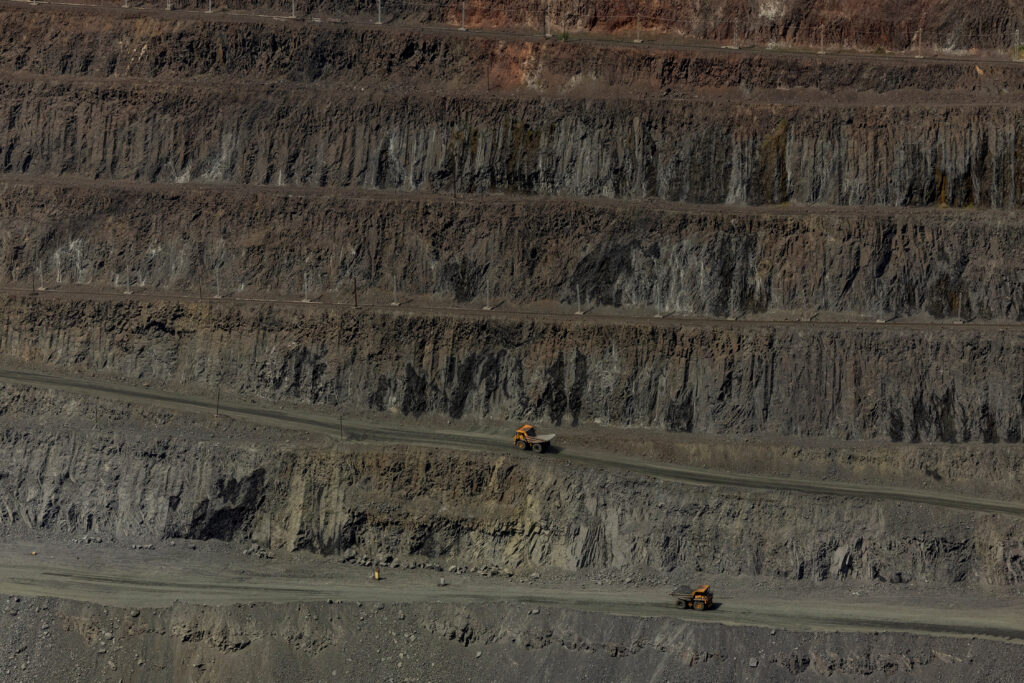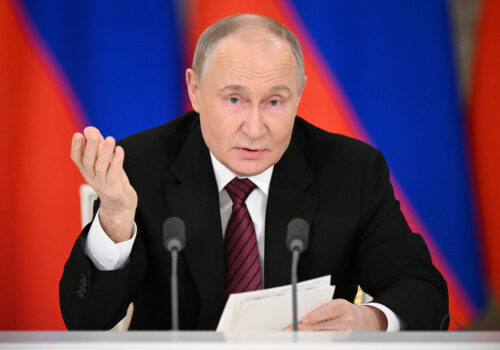The Ukrainian parliament ratified a landmark economic partnership agreement with the United States in early May, setting the stage for a new chapter in bilateral relations between Kyiv and Washington. The minerals deal envisages long-term cooperation in the development of Ukrainian natural resources. It marks an historic shift in Ukraine’s status from aid recipient to economic partner, while potentially paving the way for the attraction of strategic investments that could help fuel the country’s recovery.
The agreement was widely welcomed in Kyiv. Ukraine’s Minister of Economy and First Deputy Prime Minister Yulia Svyrydenko called the deal “the foundation of a new model of interaction with a key strategic partner,” and noted that the Reconstruction Investment Fund within the framework of the agreement would be operational within a matter of weeks. “Its success will depend on the level of US engagement,” she emphasized.
This deal isn’t just about mining and investment. It is a new kind of partnership that combines economic cooperation with security interests. US Treasury Secretary Scott Bessent, who played a key role in negotiating the terms of the agreement, said the minerals deal was a signal to Americans that the United States could “be partners in the success of the Ukrainian people.” Others have stressed that the partnership will allow the US to recoup the billions spent supporting Ukraine in the war against Russia. However, the deal isn’t primarily about reimbursement. It is a declaration of a strategic alliance rooted in mutual economic interest.
The new agreement between Kyiv and Washington differs greatly from classic concession deals as Ukraine retains full ownership of national natural resources while the Reconstruction Investment Fund will be under joint management. Unlike more traditional trade deals or resource acquisitions, this is a strategic agreement that combines commercial objectives with geopolitical interests, making it a textbook example of economic statecraft. By establishing military aid as a form of capital investment, the United States is securing a long-term stake in Ukraine’s security and the management of the country’s resources.
Stay updated
As the world watches the Russian invasion of Ukraine unfold, UkraineAlert delivers the best Atlantic Council expert insight and analysis on Ukraine twice a week directly to your inbox.
The minerals deal with Ukraine offers a number of obvious potential advantages for the United States. Crucially, it ensures preferential access to rare and highly valued natural resources like lithium and titanium, thereby reducing dependency on China. This is a strategic win for Washington with the possibility of significant long-term geopolitical implications. The deal also creates a framework for further US military aid to be treated as an investment via the Reconstruction Investment Fund, providing opportunities for the United States to benefit economically from continued support for Ukraine.
By signing a long-term resource-sharing agreement, the United States is also sending an important signal to Moscow about its commitment to Ukraine. Any US investments in line with the minerals deal will involve a significant American financial and physical presence in Ukraine, including in areas that are close to the current front lines of the war. Advocates of the deal believe this could help deter further Russian aggression. Kremlin officials are also doubtless aware that around forty percent of Ukraine’s critical mineral reserves are located in regions currently under Russian occupation.
Eurasia Center events

There are fears that the mineral deal makes Ukraine too dependent on the United States and leaves the country unable to manage its own resources independently. Some critics have even argued that it is a form of dependency theory in action, with Ukraine’s mineral wealth set to primarily fuel the needs of US industry rather than building up the country’s domestic economy. However, advocates argue that Ukraine was able to negotiate favorable terms that create a credible partnership, while also potentially securing valuable geopolitical benefits.
The agreement provides the US with a form of priority access but not exclusivity. Specifically, the US is granted the right to be informed about investment opportunities in critical minerals and to negotiate purchase rights under market conditions. However, the framework of the agreement explicitly respects Ukraine’s commitments to the EU, ensuring that European companies can still compete for resource access.
In terms of implementation, it is important to keep practical challenges in mind. The identification, mining, and processing of mineral resources is not a short-term business with immediate payoffs. On the contrary, it could take between one and two decades to fully develop many of Ukraine’s most potentially profitable mines. Without a sustainable peace, it will be very difficult to secure the investment necessary to access Ukraine’s resources. Without investment, the Reconstruction Investment Fund risks becoming an empty gesture rather than an economic powerhouse.
The minerals deal has the potential to shift the dynamics of the war while shaping the US-Ukrainian relationship for years to come. The United States is not only investing in resources, it is also investing in influence. Viewed from Washington, the agreement is less about producing quick payoffs and more about allowing President Trump to make a statement to US citizens and to the Russians. For Ukraine, the minerals deal provides a boost to bilateral relations and creates opportunities for a new economic partnership. America’s strategic rivals will be watching closely to see how this partnership now develops.
Svitlana Kovalchuk is Executive Director at Yalta European Strategy (YES).
Further reading
The views expressed in UkraineAlert are solely those of the authors and do not necessarily reflect the views of the Atlantic Council, its staff, or its supporters.

The Eurasia Center’s mission is to enhance transatlantic cooperation in promoting stability, democratic values, and prosperity in Eurasia, from Eastern Europe and Turkey in the West to the Caucasus, Russia, and Central Asia in the East.
Follow us on social media
and support our work
Image: Mining dump trucks drive on haul roads in Kryvyi Rih, Ukraine. April 23, 2025. REUTERS/Thomas Peter




